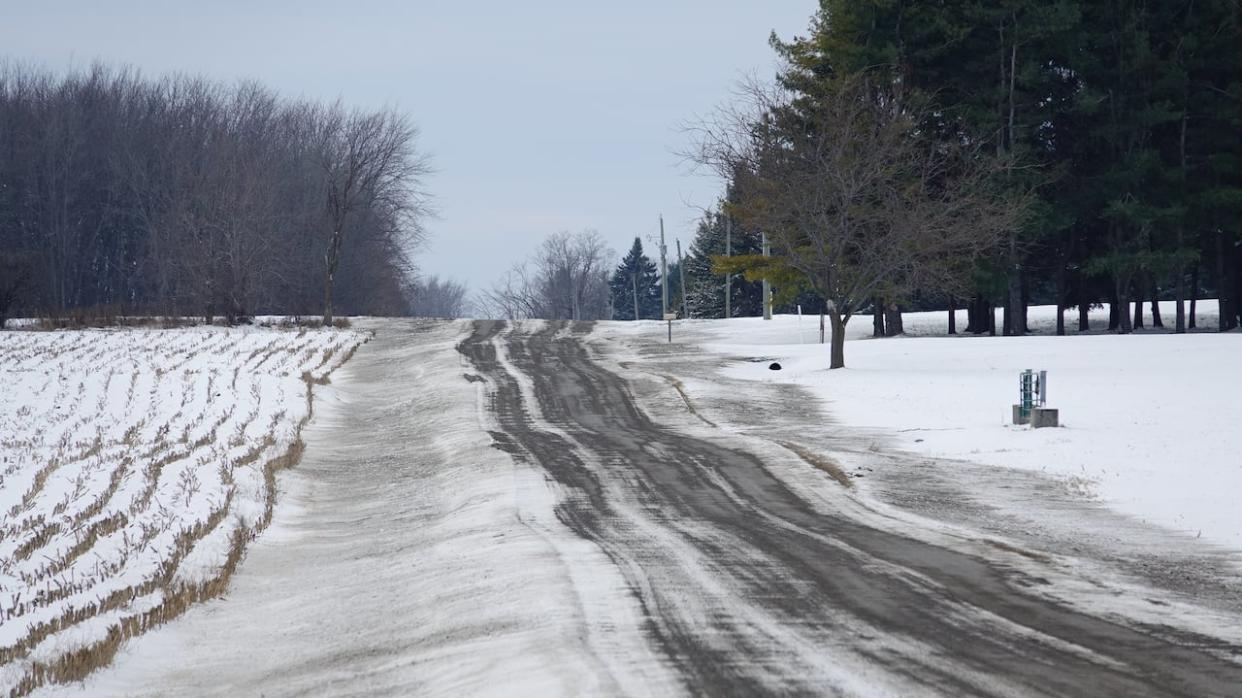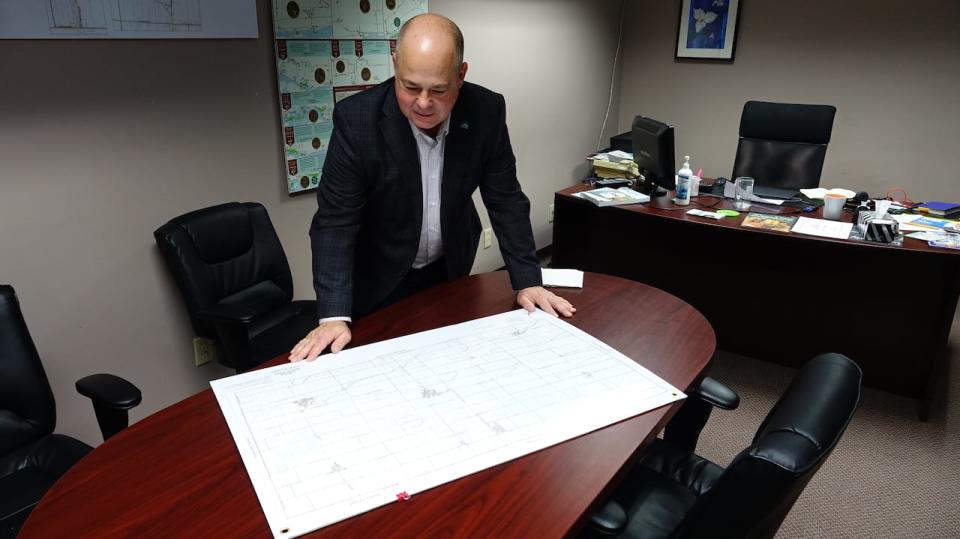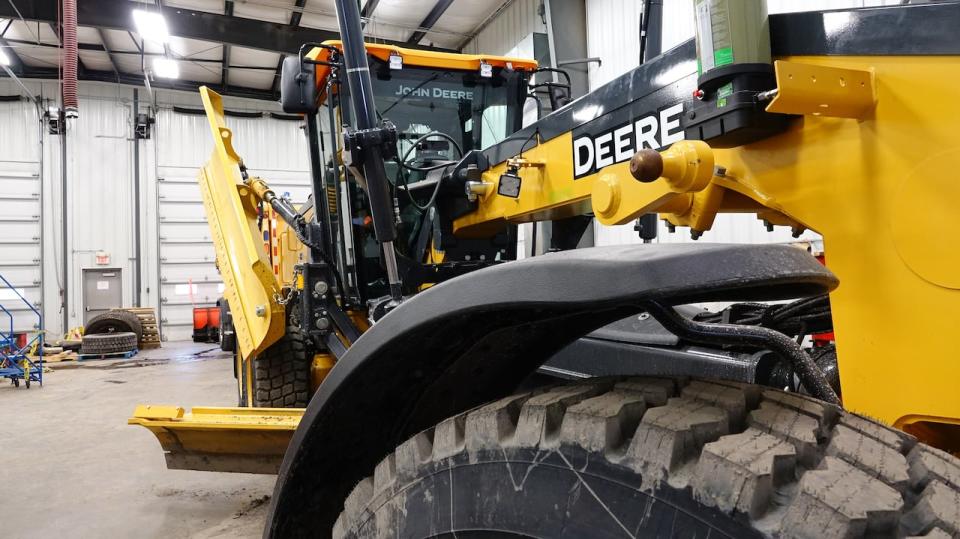North Dundas residents want this 'atrocious' gravel road resurfaced. The mayor says it's not that simple

A resident of North Dundas, Ont., has started a petition demanding an upgrade to the gravel road in front of her house, but the municipality says the proposed solution — a "tar and chip" road surface — is more trouble than it's worth.
If gravel is the fast food of road surfaces and pavement is French cuisine, then tar and chip — a two-stage process in which a layer of hot liquid asphalt is immediately followed by a layer of small aggregate — is perhaps the "casual dining" of road treatments.
Tar and chip is often used by road departments as a budget-stretching option and costs a fraction of paving.

North Dundas resident Cassandra MacDonald has collected nearly 200 signatures on a petition calling for Thompson Road to be resurfaced with tar and chip. (Stu Mills/CBC)
It's also the resurfacing option Cassandra MacDonald wants to replace the gravel of Thompson Road, where she lives.
MacDonald says she regularly finds car parts littering the road, and said locals sometimes choose to drive in the ditches to avoid deep ruts, washboard-like bumps and axle-snapping potholes. She said many of the community's gravel roads are in similarly poor condition.
"They are absolutely atrocious," she said.
When it occurred to her that her daughter will have to endure those bumpy road conditions aboard a school bus starting in September, she started the tar and chip petition that now has nearly 200 signatures.

North Dundas Mayor Tony Fraser surveys a map of local roads, about one-third of which are tar and chip. (Stu Mills/CBC)
'False promises' of tar and chip
But in North Dundas and other rural municipalities, tar and chip may have reached the end of the road.
A decade ago, the municipality was enthusiastically proclaiming tar and chip as the future. A section of its 2013 annual report entitled "building a better road network" noted that "over 200 homes saw their roads upgraded from gravel to tar and chip" that year, and that tar and chip roads outnumbered gravel roads for the first time in the municipality's history.
Roughly one-third of the roads in North Dundas are now tar and chip.
But 11 years later, Mayor Tony Fraser says the shine is off the once-popular road treatment.
"It offers false hope, false promises [and] expectations that won't be realized," he said.
Fraser said super-sized modern agricultural equipment has caused the tar and chip surfaces to break down rapidly, often within a year or two, with no easy maintenance or repair options.

A brand new road grader sits in a public works garage in North Dundas (Stu Mills/CBC)
James Smith, a technical programs and research manager with the Ontario Good Roads Association, said tar and chip is now seen as a dead end.
"You're actually seeing that across the majority of municipalities across Canada," he said.
Smith agrees with Fraser that modern farm equipment has grown in size and weight, piling additional wear on roads that were "never designed for the loads they are experiencing."
Road grader purchased
MacDonald's neighbour Alison Richer agrees the municipality's roads are in poor condition, and said it's time for North Dundas to try something new.
"They have done the same thing for years and years and it's not working," Richer said.
Fraser said the long-term solution for Thompson Road and other gravel roads in North Dundas is asphalt, but in the meantime maintaining existing gravel roads will be the priority.
Last week, the municipality took delivery of a new $689,000 road grader to aid in their efforts.


